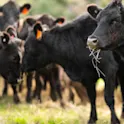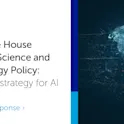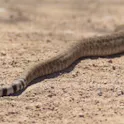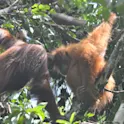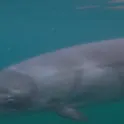
Featured news
31 Jul 2023
Scientists solve ‘enigma’ of pygmy right whales’ feeding habits
By Mischa Dijkstra, Frontiers science writer A pygmy right whales in the wild. Image credit: Henry Cordell Researchers have shown from stable isotope ratios in the baleen of pygmy right whales that this ‘most enigmatic’ species of baleen whales remains in waters off southern Australia year-round and feeds on Australian krill and copepods. Unlike larger relatives, they don’t make seasonal migrations to Antarctic regions. Pygmy right whales (Caperea marginata) are the smallest, ‘most enigmatic’, and probably least studied of all baleen whales. Baleen act like sieves in the mouth of baleen whales, which allow seawater to pass but trap small prey items like zooplankton and small fish. Pygmy right whales are rarely seen in the wild. Reason for this may be their relatively small size – up to 6.5 meters long and weighing up to 3.5 tons –, sparse distribution, and inconspicuous behavior, especially compared to the boisterous humpback whales. Historically, whalers rarely bothered hunting them. The little we know about them is mainly based on beached animals. “Here we show that pygmy right whales don’t behave like most other baleen whales: they don’t make long cross-ocean migrations,” said Dr Tracey Rogers, a professor of ecology and evolution at the […]







